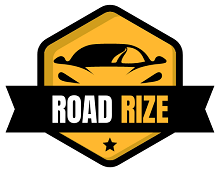If you’ve ever experienced a strange sensation while braking, you’re not alone. Many drivers have asked the common question: Why does my car vibrate when braking? This issue can be unsettling, and it’s important to understand the underlying causes and how to address them. In this post, we’ll explore the possible reasons behind this vibration and how to fix the problem.
Table of Contents
Common Causes of Vibration: Why Does My Car Vibrate When Braking?
The first step in solving any problem is understanding why it happens. Why does my car vibrate when braking? There are a few key reasons for this, and each one requires a different approach to resolve.
- Warped Brake Rotors One of the most common causes of vibration when braking is warped brake rotors. Brake rotors are critical components that help slow your vehicle down. Over time, they can become uneven due to heat buildup or excessive wear, leading to vibration when the brake pads press against them.If you’re wondering, why does my car vibrate when braking, it could very well be due to warped rotors. This is usually the result of heavy braking or driving in stop-and-go traffic. Fortunately, this issue can often be solved by having the rotors resurfaced or replaced.
- Worn Out Brake Pads Another reason you might be asking, why does my car vibrate when braking, is worn-out brake pads. As the brake pads wear down, they lose their effectiveness, causing uneven contact with the rotors. This can create vibrations when braking. If your brake pads are too thin, it’s time to replace them. Doing so will not only eliminate the vibration but also ensure that your braking system is functioning properly.
- Suspension Problems In some cases, suspension problems can contribute to vibrations when braking. If components like shocks or struts are worn out, they may fail to stabilize the car properly, leading to vibrations that intensify when you press the brake pedal. If you’re asking, why does my car vibrate when braking, and the issue isn’t with the brake components themselves, it’s worth checking the suspension system for any wear and tear.
- Out of Balance Wheels Wheels that are out of balance can also cause vibrations when braking. Although this is more common at higher speeds, it can affect braking performance too. Unbalanced wheels can create a shaking sensation as the vehicle slows down. If you’re experiencing vibration and wondering, why does my car vibrate when braking, make sure your wheels are properly balanced. This can often resolve the issue if balance is the culprit.
- Brake Caliper Issues A sticking or malfunctioning brake caliper can also cause vibrations when braking. When a caliper doesn’t release properly, it can cause uneven braking pressure, leading to vibrations. If you’re still asking, why does my car vibrate when braking, it could be time to inspect your brake calipers for any signs of damage or malfunction.

How to Fix the Vibration: Why Does My Car Vibrate When Braking?
Now that we’ve addressed some common causes of vibration, you’re probably wondering how to fix the issue. Here are a few steps you can take to resolve the problem:
- Inspect the Brake Rotors and Pads Start by checking the condition of your brake rotors and pads. If either is worn or damaged, you may need to have them replaced or resurfaced. A mechanic can inspect these components and determine if they need attention.
- Check the Suspension If you suspect suspension problems, it’s important to have your suspension system inspected by a professional. Worn-out shocks or struts should be replaced to restore the stability of your vehicle.
- Balance Your Wheels If your wheels are out of balance, visit a tire shop to have them properly balanced. This can be a quick and effective way to eliminate vibrations caused by unbalanced wheels.
- Examine the Brake Calipers If you think the problem is with the brake calipers, a mechanic can inspect them for sticking or malfunction. Replacing or repairing damaged calipers can restore proper braking function.
Conclusion: Why Does My Car Vibrate When Braking?
If you’ve been asking yourself, why does my car vibrate when braking, now you have a better understanding of the possible causes. From warped rotors to suspension issues, there are several factors that can lead to vibrations during braking. The good news is that most of these issues can be resolved with professional repair.
Don’t ignore the vibrations in your car—addressing them sooner rather than later can help you avoid more serious problems and ensure your vehicle is safe to drive. Whether you need new brake pads, resurfaced rotors, or suspension repairs, the key is to get your car inspected as soon as possible.
Remember, if you’re wondering, why does my car vibrate when braking, always consult a mechanic to help diagnose and fix the problem. Keeping your car in good condition will improve your driving experience and maintain your safety on the road.
Related Post:
For more tips on maintaining your vehicle’s performance, check out our guide on how to replace a car brake light bulb.





Leave a Reply